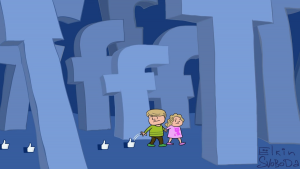INTERNATIONAL SEMINAR ON RUSSIA AND FREEDOM OF EXPRESSION:
Media, Capital, and Culture: Institutional Spaces in Between
May 19th 2017, 10:15-17:30
@University of Helsinki, Aleksanteri Institute, 2nd floor (Unioninkatu 33)
Please pre-register by Monday, May 15th at https://elomake.helsinki.fi/lomakkeet/79920/lomake.html
This workshop calls attention to the cultural and economic policies which condition and govern, directly and indirectly, individual and collective entrepreneurship and freedom of expression. Focusing on the Russian-language culture and media, the workshop analyses the interaction between institutionalized networks and how they impact freedom of expression in the neoliberal economic context. The workshop aims to explore how creative professionals working in media and cultural institutions negotiate political agency, cultural diversity and social critique in the age of digitalization, transnational mobility and global consumption. Russian-language culture and media offer a productive framework for exploring questions of official and unofficial discourses, hybrid identities, transgressive border-crossings, convergent intellectual and communication technologies. Nowadays, these complex questions need to be reconsidered in terms of Russia’s role in cultural globalization. The workshop brings together scholars of Russian culture, theoreticians of media and cultural and media practitioners.
The seminar is jointly organized by the Culture Cluster of the Finnish Centre of Excellence in Russian Studies ‘Choices of Russian Modernization’, Russian MediaLab research project, and the Leeds Russian Centre (Russia[n] in the Global context).
Image: courtesy of Sergey Elkin, Moscow-based visual artist
PROGRAM
10:15-10:30 Opening words: Sanna Turoma (University of Helsinki, Finland) and Vlad Strukov (University of Leeds, UK)
10:30-11:45 Panel I: Hybridization of Culture, Media and Politics
Saara Ratilainen (University of Helsinki): Collaborative Media and Cultural Practices in Russian Cities Vlad Strukov: Gamification of Russian Politics: Where Media and Culture Converge
Discussant: Ilya Kalinin (Saint Petersburg State University, NZ Debates on Politics and Culture, Russia)
11:45-13:00 Break
13:00-14:30 Panel II:
Re-considering the Impact of Legislative, Technological and Educational Developments
Mariëlle Wijermars (University of Helsinki): The Russian Internet ‘Blacklist’ Law – Five Years on: The Curtailment of Freedom of Speech Online
Vera Zvereva (University of Jyväskylä, Finland): Targeting Youth: New Media State Propaganda and Popular Culture
Susan Ikonen (University of Helsinki): Popular History Books and Russian Book Market Discussant: Olga Shevchenko (Williams College, USA)
14:30-15:30 Panel III Pioneering Media and Cultural Practices: Meduza and the Success of Russian Media Abroad Ivan Kolpakov (Editor-in-Chief of Meduza, Riga, Latvia) in conversation with Vlad Strukov
15:30-16:00 Coffee
16:00-17:30 Panel IV: New Emerging Spaces for Media, Arts and the Market (Roundtable discussion)
Moderator: Sanna Turoma
Participants: Andrey Bogush (Artist), Liisa Roberts (Artist), Ilya Kalinin, Ivan Kolpakov, Vlad Strukov
